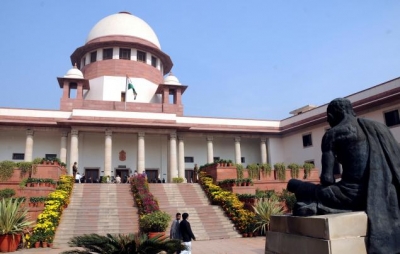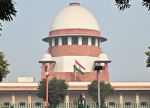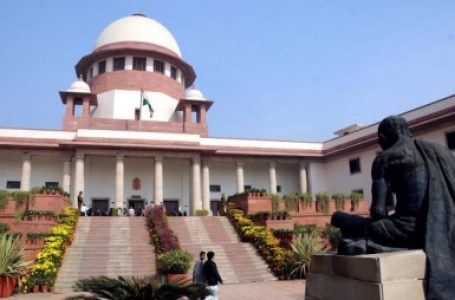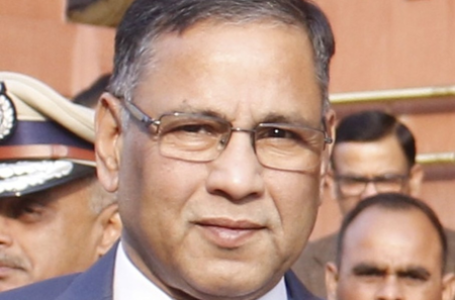
New Delhi: The petitioners challenging the validity of the Waqf (Amendment) Act, 2025, argued before the Supreme Court on Tuesday that the contentious amendments introduced to the waqf law are designed to “capture” properties through an executive and non-judicial process.
“The 2025 Waqf (Amendment) Act has been framed for purposes of ‘protection of waqfs’, but, in reality, it is designed to capture waqf through a process which is non-judicial and executive,” submitted senior advocate Kapil Sibal before a bench of CJI B.R. Gavai and Justice A.G. Masih.
Explaining the nature of waqf properties, Sibal said that it is an endowment to Allah (the god) by private individuals, incapable of further transfer in line with the principle that “once a waqf, always a waqf”. However, under the Waqf (Amendment) Act, 2025, if an encroacher raises a dispute, the waqf property will lose its very nature till the dispute is decided, he added.
“The 2025 Waqf (Amendment) Act is a complete departure from the past legislations on waqf. It is for the first time, under the 2025 Amendment Act, in case of non-registration, the property will not be regarded as property,” contended Sibal, adding that though previous legislations required registration of waqfs, but did not mandate any adverse consequences in cases of non-registration except for removal of mutawalli.
The senior counsel highlighted that legislations like the Ancient Monuments Preservation Act, 1904, the Ancient Monuments and Archaeological Sites and Remains Act, 1958, etc., were introduced for better protection of waqf properties but did not interfere with their waqf status. “For example, say, Jama Masjid or any other place of worship. The government can say it intends to preserve the property and declare the property an ‘ancient monument’. But the property won’t lose its character, and it doesn’t mean that you can go and pray there. No ownership was transferred to the government. You couldn’t stop the user of the waqf property for the purposes of dedication,” said Sibal.
Sibal argued that before the enactment of the recent amendment to the Waqf Act, the right to religious worship was preserved even under the Ancient Monuments Preservation Act, 1904.
He reiterated that the Waqf (Amendment) Act, 2025, is meant for “complete takeover” of the waqf properties, including ownership.
He further questioned the validity of the recently introduced provision providing the requirement of five years of practice as a Muslim before the creation of a waqf. “This requirement is per se unconstitutional. This (creation of waqf) is a right guaranteed under Article 25 of the Constitution,” argued Sibal.
He highlighted that the majority of members in the Central Waqf Council could be non-Muslims if the Union government so chooses under the Waqf (Amendment) Act, 2025.
“The balance of convenience is in our favour, and irreparable injury will be done if these provisions are activated. If I cannot create a waqf, unless I satisfy the 5-year Muslim requirement, it is an immediate injury and irreparable,” submitted Sibal.
The CJI Gavai-led Bench is hearing the arguments of the parties on the question of the interim stay on the implementation of the Waqf (Amendment) Act, 2025.
In an earlier hearing, after the apex court hinted at passing a stay order, the Union government had assured the top court that it would not de-notify provisions related to ‘Waqf by user’ or include non-Muslim members in the Waqf Board.
It had granted a week to the Centre and state governments and the Waqf Boards to file their preliminary reply.
The apex court decided to treat five writ petitions as lead cases, apart from ordering the registry to rename the cause titles of the proceedings as “In Re: The Waqf (Amendment) Act, 2025”.
The petitioners have contended that the amendments introduced to the Waqf Act are discriminatory and infringed upon the fundamental rights of the Muslim community. Conversely, six BJP-ruled states have backed the Union government, supporting the amendments as constitutionally valid and necessary.
The Waqf (Amendment) Bill, 2025, received presidential assent from President Droupadi Murmu on April 5 after it was passed in both Houses of Parliament following intense debate. The Centre, in a preliminary affidavit, has urged the Supreme Court to reject the petitions, arguing that the impugned law does not infringe upon constitutional guarantees.
–IANS




















